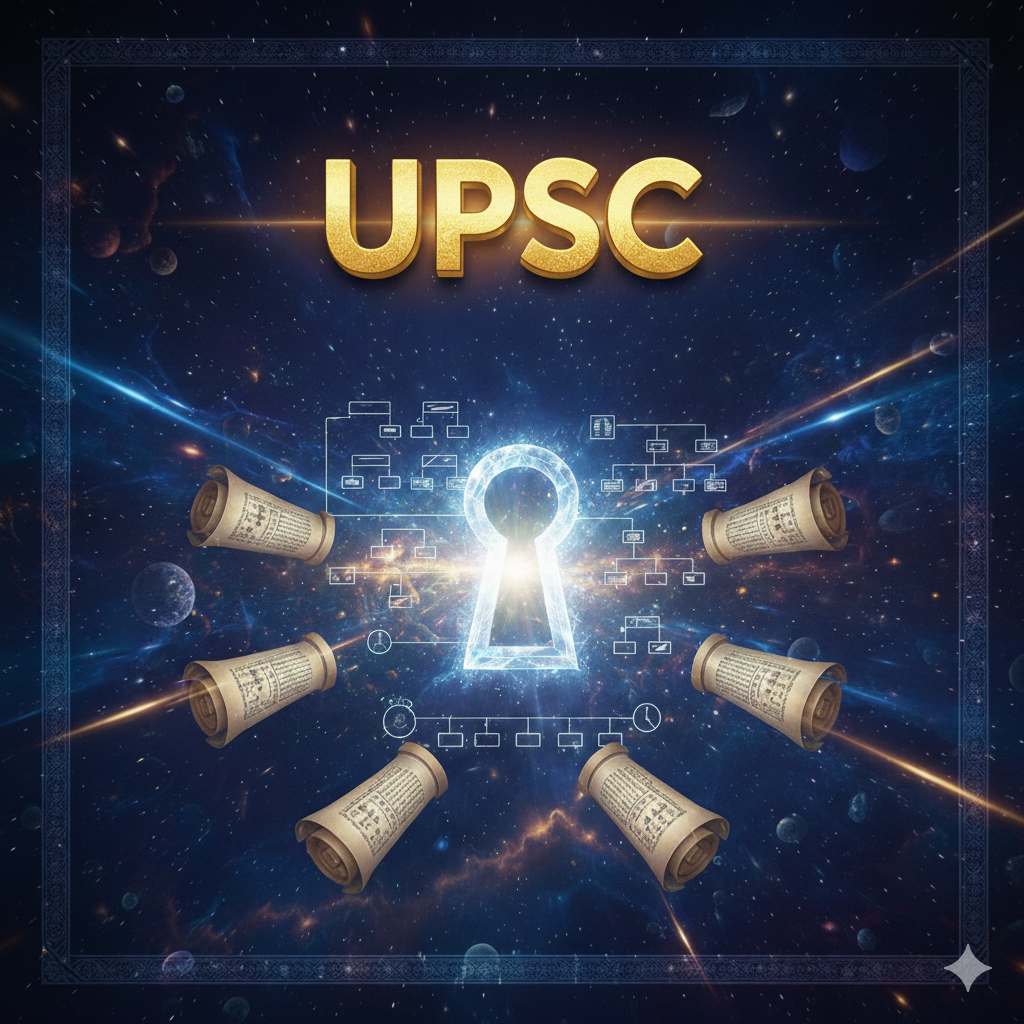The Uttar Pradesh Public Service Commission (UPPCS) exam is one of the most competitive state civil service exams in India. Success in UPPCS requires a strong conceptual foundation, strategic preparation, and rigorous practice. One of the most effective tools for preparation is mock tests, which help aspirants evaluate their progress, identify weaknesses, and develop exam-taking skills.
This guide provides an in-depth understanding of UPPCS mock tests, their benefits, strategies to use them effectively, and tips for improving performance through regular practice.
Understanding the Role of Mock Tests in UPPCS Preparation
Mock tests simulate the actual exam environment, allowing candidates to experience real-time pressure, question patterns, and time management challenges.
Why Are Mock Tests Important?
- Assessing Preparation Level – Helps aspirants analyze their strengths and weaknesses.
- Understanding Exam Pattern – Provides clarity on question trends, difficulty level, and weightage of topics.
- Improving Time Management – Trains candidates to complete papers within the allotted time.
- Reducing Exam Anxiety – Builds confidence by making candidates comfortable with the exam format.
- Enhancing Answer Writing Skills – For Mains, mock tests help improve structured and well-articulated answers.
- Boosting Accuracy and Speed – Helps in minimizing errors and increasing efficiency in solving questions.
Aspirants who integrate mock tests into their preparation strategy tend to perform better in the actual exam.
Types of UPPCS Mock Tests
UPPCS mock tests can be divided into different categories based on the exam stage and test format.
1. UPPCS Prelims Mock Tests
The UPPCS Prelims consists of two objective-type papers:
- General Studies Paper 1 – Merit-based (150 questions, 200 marks)
- CSAT (General Studies Paper 2) – Qualifying (100 questions, 200 marks, 33% required)
Mock Test Focus Areas:
- Subject-wise Tests: Covers History, Polity, Geography, Economy, Science, Environment, and Current Affairs.
- Full-Length Mock Tests: Simulates actual exam papers with mixed subject questions.
- CSAT Practice Tests: Includes logical reasoning, comprehension, and quantitative aptitude questions.
2. UPPCS Mains Mock Tests
The Mains exam consists of descriptive answer writing, making mock tests essential for:
- Essay Paper: Tests writing skills and articulation of ideas.
- General Studies Papers (1-4): Includes History, Polity, Economy, Science, Ethics, and other subjects.
- Optional Subject Papers: Tests subject-specific knowledge with structured long-form answers.
- Hindi & English Language Papers: Helps improve grammar, comprehension, and writing clarity.
3. UPPCS Interview (Personality Test) Mock Sessions
The final stage of UPPCS is the interview, where candidates face a panel of experts. Mock interviews help in:
- Improving confidence and communication skills.
- Enhancing clarity of thoughts on current affairs.
- Practicing responses to expected questions on personality, optional subjects, and situational judgment.
Benefits of Solving UPPCS Mock Tests
Mock tests provide multiple advantages in a candidate’s preparation journey.
1. Understanding Exam Trends
Regular practice helps in recognizing frequently asked topics, question difficulty levels, and changes in the pattern over the years.
2. Real-time Exam Simulation
Mock tests replicate the actual exam scenario, helping aspirants manage stress, pressure, and time constraints effectively.
3. Improves Question-solving Ability
By solving a variety of questions, candidates develop problem-solving strategies, analytical skills, and accuracy in answering.
4. Strengthening Weak Areas
After every mock test, aspirants can analyze their mistakes and work on improving weak topics.
5. Building Exam Strategy
Mock tests help candidates determine:
- Which sections to attempt first.
- How to allocate time for different subjects.
- Which types of questions to avoid (if negative marking is applicable).
6. Improves Answer Writing Skills for Mains
For the Mains exam, practice tests refine structured answer writing, use of relevant examples, and presentation skills.
How to Effectively Use UPPCS Mock Tests?
Simply solving mock tests is not enough; aspirants must follow a structured approach to maximize benefits.
1. Follow a Consistent Mock Test Schedule
- Start mock tests at least 3-4 months before the exam.
- Take at least one full-length mock test per week and increase frequency closer to the exam.
2. Attempt Mock Tests in a Simulated Exam Environment
- Solve papers in a quiet place under strict time limits.
- Use OMR sheets (for Prelims) and A4-size sheets (for Mains) to get the real exam experience.
3. Analyze Mistakes After Every Test
- Identify incorrect answers and weak areas.
- Revise concepts and solve similar questions from reference books.
- Maintain an error notebook to track repeated mistakes.
4. Improve Time Management Skills
- For Prelims: Aim to complete the GS Paper 1 within 1 hour and 40 minutes to have time for revision.
- For CSAT: Focus on quick calculations and shortcut techniques for aptitude questions.
- For Mains: Set time limits for each answer and practice writing within constraints.
5. Focus on Accuracy and Speed
- For Prelims, avoid random guessing to prevent negative marking.
- For Mains, practice precise and structured writing to enhance clarity.
6. Revise Frequently
- After every mock test, revise incorrect answers and important concepts.
- Make short notes for last-minute revision.
Where to Find UPPCS Mock Tests?
1. Official UPPSC Website & Previous Year Papers
The UPPSC official website provides previous years’ question papers, which can be used as mock tests.
2. Coaching Institutes & Online Platforms
- Vision IAS
- Drishti IAS
- Testbook
- Gradeup
- BYJU’s
- Unacademy
These platforms offer full-length mock tests, sectional tests, and Mains answer writing practice.
3. Standard UPPCS Guidebooks with Practice Tests
Books like Arihant, Lucent, and Pratiyogita Darpan have mock test series specifically designed for UPPCS.
Common Mistakes to Avoid While Taking Mock Tests
- Not Reviewing Mistakes – Simply solving tests without analyzing errors reduces effectiveness.
- Skipping Difficult Questions – Avoiding complex topics instead of understanding them leads to poor preparation.
- Neglecting Mains Answer Writing Practice – Many aspirants focus only on Prelims tests, ignoring the importance of structured writing.
- Ignoring Time Management – Solving questions without a timer does not prepare candidates for real exam constraints.
- Over-dependence on One Source – Relying on only one test series instead of diverse mock tests limits exposure.
Final Strategy: How Many Mock Tests Should You Take?
- For Prelims: 30-40 full-length mock tests + topic-wise sectional tests.
- For Mains: 15-20 full-length answer writing tests + daily practice of 3-4 questions.
- For Interview: At least 3-4 mock interviews with expert feedback.
A well-balanced approach to mock tests, revision, and conceptual clarity ensures higher success chances in the UPPCS exam.
Conclusion
Mock tests play a critical role in UPPCS preparation by helping aspirants assess their knowledge, improve accuracy, and develop exam strategies. With consistent practice, analysis, and revision, candidates can significantly improve their performance in both Prelims and Mains. Mock tests not only identify weak areas but also boost confidence and time management skills—essential for clearing the UPPCS exam.
By following a structured mock test approach, aspirants can enhance their chances of success and move closer to their dream of becoming a UPPCS officer.




